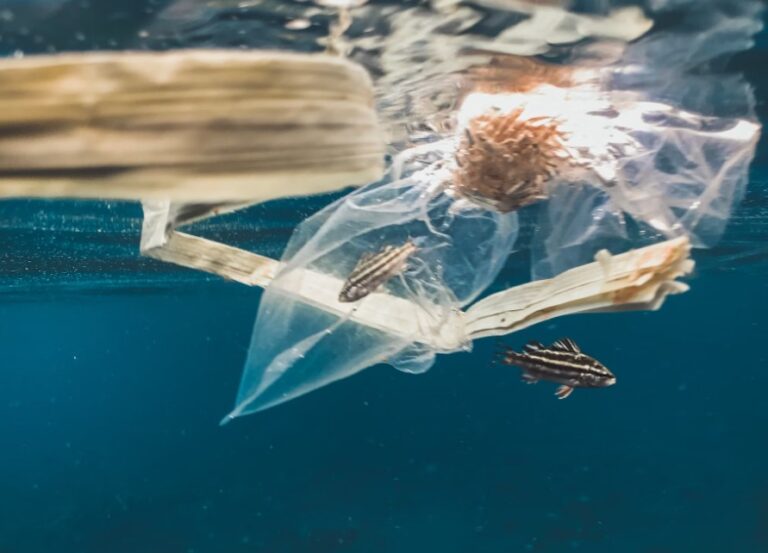Rwanda, a small East African nation of about 12 million people, has earned a name for itself by adopting bold and pioneering initiatives in the global fight against plastic waste.
This landlocked nation, nicknamed the “Land of a Thousand Hills,” has taken the initiative to outlaw plastic bags, paving the way for other countries to follow suit.
In this article, we will look into how Rwanda became a leader in the ban on plastic pollution, the strategies it employed, and the effect of its initiatives.
Table of Contents
Rwanda plastic ban: the history
The process of banning plastic in Rwanda began in the early 2000s, while the country was still struggling to recover from the genocide of 1994. The administration acknowledged the growing plastic pollution problem and the associated environmental and health hazards during this difficult time.
As a result, they went ahead and took preventative precautions. When compared to other countries’ approaches to combating plastic pollution, Rwanda’s decision in 2008 to outlaw plastic bags with severe penalties and see immediate environmental benefits stands out. Rwanda is one of the first countries in the world to do so.
The government did not stop at prohibiting the manufacture and importation of plastic bags; instead, it actively implemented the ban with severe fines for those who disregarded it. This made a huge difference because many countries, including Singapore, had a hard time strictly enforcing limits on single-use plastics.
Manufacturers of illegal plastic bags could spend up to a year behind bars. And retailers could be hit with fines of up to 300,000 Rwandan francs (about $408). Meat, poultry, fish, and milled cassava leaves that come in plastic bags are an exception because they need to be refrigerated after being packaged.
Reasons why Rwanda ban plastic
The improper disposal of single-use plastics in Rwanda can clog drains, leading to an increase in the population of mosquitoes and other insects that spread disease, such as malaria. This can lead to flooding and a decrease in agricultural output.
The proper disposal of some plastics was also an issue for Rwandan officials. Pollutants of a dangerous and hazardous kind are released when they are burned.
And when animals ingest the plastic, the hazardous chemicals employed in its production make their way into the food chain. Since meat makes up such a significant amount of the average person’s diet, this is cause for alarm.
Innovations and alternatives implemented by Rwanda
Rwanda understood that prohibiting single-use plastic bags was not an adequate strategy to address the larger problem of plastic pollution. The government responded by promoting the use of environmentally preferable materials.
The government of Rwanda actively encouraged citizens to replace single-use plastic bags with more environmentally friendly alternatives. Such as paper bags, reusable bags, and hand-woven baskets made from natural fibers.
This method not only reduced plastic use, but also benefited local artisans by opening up new markets for their wares.
Rwanda community engagement
Rwanda’s success in prohibiting plastic can also be credited to the country’s dedication to public participation. The government launched widespread information programs to raise people’s consciousness about the dangers of plastic pollution.
Volunteering in cleanups and other waste management initiatives was strongly promoted. The monthly Umuganda community service day concept was significant in mobilizing people to take responsibility for environmental upkeep and rubbish disposal.
Rwanda’s efforts to eliminate plastic use are not limited to single-use items like shopping bags. The “Clean City“ program was created with the goal of making the nation’s capital, Kigali, into one of the cleanest cities in all of Africa.
The program’s goals include increasing recycling rates and expanding urban greenery. It is an impressive illustration of eco-friendly and long-term urban development.
Economic benefits, impacts, and global inspiration of Rwanda’s plastic ban
The plastic prohibition in Rwanda also had a positive effect on the country’s economy. Paper bag and hand-woven basket production boomed as a result of government support for environmentally preferable products. The nation’s dedication to environmental preservation has also attracted investments from green businesses and nonprofits.
Rwanda’s all-encompassing plan to reduce plastic use has produced impressive results. There has been a significant decrease in plastic pollution, and the country’s streets and landscapes are much tidier as a result. We now have cleaner water bodies, less contaminated soil, and fewer clogged drainage systems thanks to the prohibition on non-biodegradable plastic bags.
The world has taken notice of this progress. The nation’s accomplishment in eradicating plastic has garnered praise from around the world. Multiple worldwide conversations on environmental conservation have referenced Rwanda as an example to follow for its successful anti-plastic programs.
Promoting economic and environmental sustainability
Rwanda’s foresight in instituting a plastics ban exemplifies the power of resolve and robust government policy in the fight against plastic pollution.
Rwanda has set a wonderful example for the globe by enacting strong legislation, promoting eco-friendly alternatives, engaging communities, and focusing on economic and environmental sustainability.
The country’s progress proves that reducing plastic waste is not only doable. But also has positive effects on the economy and the environment. The success of Rwanda’s efforts to decrease plastic waste and safeguard the environment serves as an example for other countries to follow.
Read also: Disposable cutlery and plates goodbye: revolution in the UK












